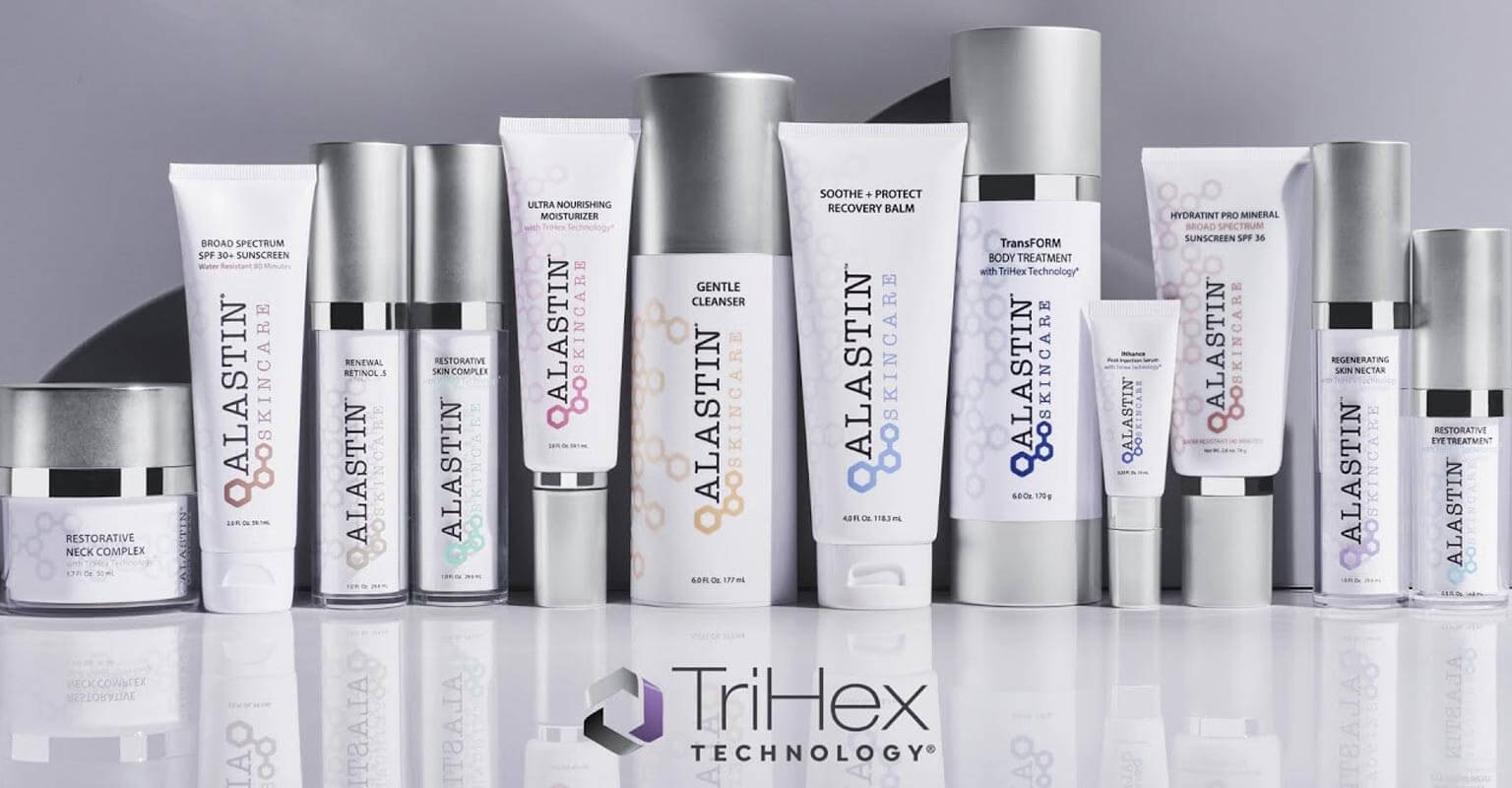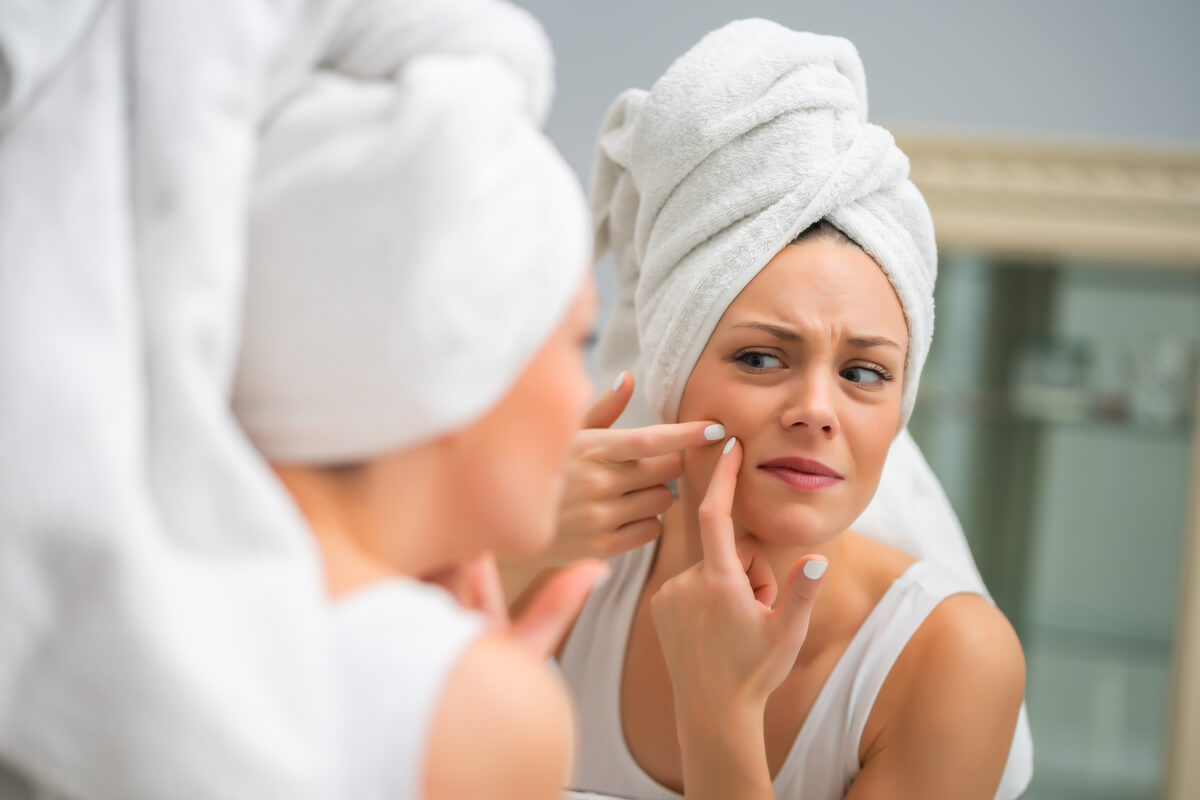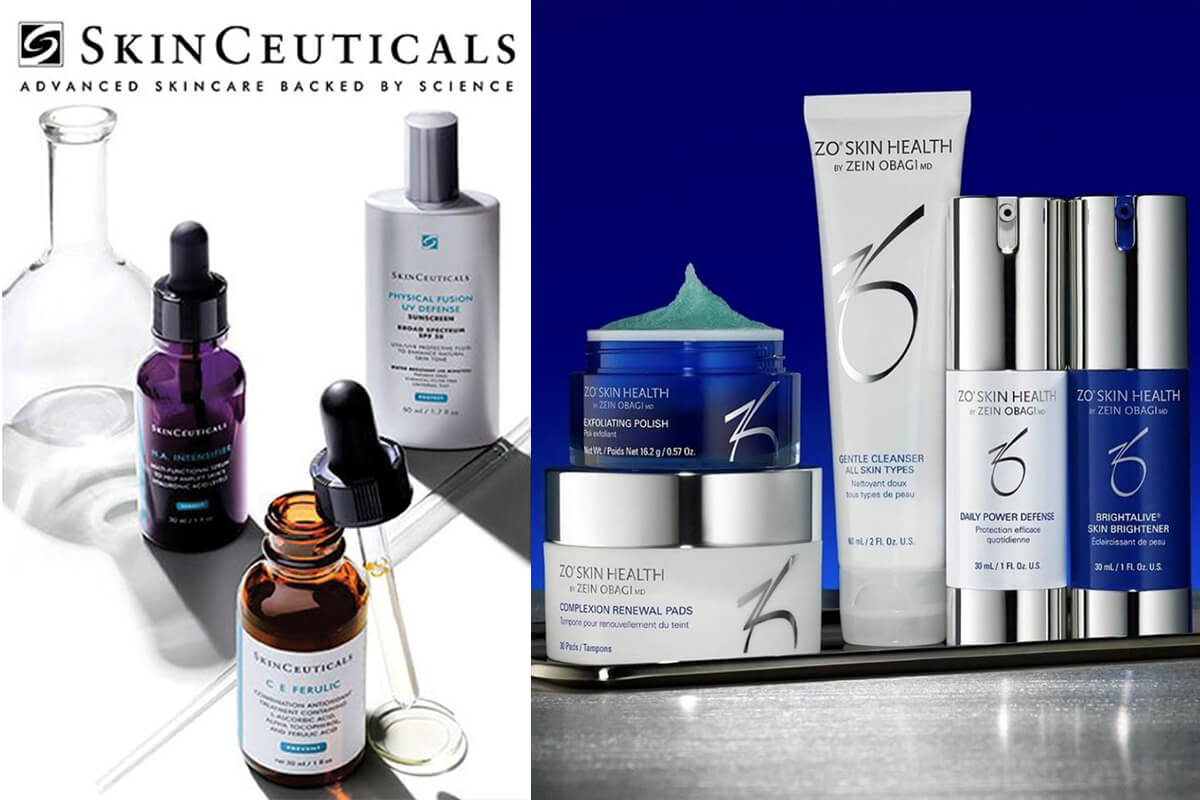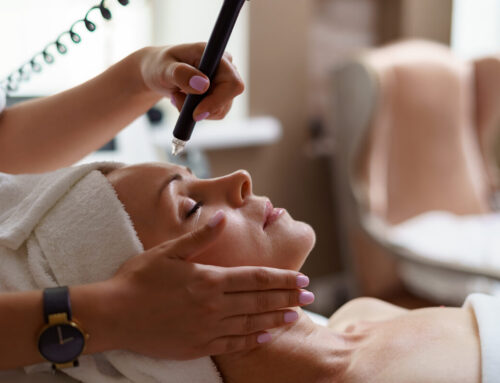What are over-the-counter skin care products?
OTC skincare products are those you can purchase at your neighborhood drug or beauty store without a prescription, and they are not regulated by the Food and Drug Administration (FDA).
What are medical-grade skin care products?
Some over-the-counter skincare products are marketed as being of medical-grade quality. Even if many are supported by clinical studies and follow FDA guidelines, medical-grade products can only contain substances permitted for over-the-counter use. Although physicians and estheticians only prescribe many medical-grade items, a doctor’s prescription is not necessary to purchase them.
What are prescription skincare products?
These are FDA-approved skin care products available only with a doctor’s prescription. These products have solid scientific support for treating medical skin disorders demonstrating their safety and effectiveness.

Examples of skincare products based on the categories mentioned
Let’s take retinoid products, for instance. Retinoids, a class of vitamin A compounds that includes retinol, are frequently used to treat acne and minimize the appearance of wrinkles.
- Over-the-counter retinol creams and serums: You can buy some retinol over-the-counter to cure acne and get a more even skin tone. Despite their high concentration, over-the-counter retinol is less effective than the retinoid components found in prescription treatments.
- Retinols of a medical grade. Medical-grade retinol can also be purchased without a prescription. However, they have a higher concentration of the same active chemicals found in drugstore goods and have clinical trials to support their efficacy.
- Tretinoin, referred to as Retin-A, is a prescription-only retinoid used to treat acne with potent retinoids. Due to its potency and risk for adverse effects in some patients, it is only offered with a doctor’s prescription.
What are the advantages of medical-grade skincare products over over-the-counter in our products?
Medical-grade skincare products are produced to target specific cosmetic or medical skin conditions. Therefore, they are more effective if prescribed by a physician or aesthetician.
Its advantages include:
- Higher level of the active components: Higher component concentrations may not be beneficial for all skin conditions, but they can be helpful for patients who haven’t had success with lower dosage treatments.
- They are supported by medical research and technology: Even though clinical trials are not required for medical-grade skincare products, medical research is frequently used by medical-grade skincare companies to test the efficacy of their products.
- Expert Recommendation: Due to so many available options, you might find it challenging to choose the best skincare products. Physicians and aestheticians will recommend medical-grade skincare products tailored to your individual needs so you don’t waste money on several products that might or might not work.
What are the disadvantages of over-the-counter skincare products?
- Less active component concentration
Unlike medical-grade skincare products, many over-the-counter treatments contain filler substances and water. OTC skincare products are only permitted to include minimal active ingredients in contrast to medical-grade products, which contain 99 percent active components.
- Increased likelihood of failing to achieve your goals
Assessing whether over-the-counter skincare products will produce the desired outcomes is challenging, especially if you have specific problem areas. Regrettably, some OTC medicines make erroneous claims on the label, promising effects that are impossible to achieve with such a small amount of active substances.
- Do not penetrate the skin’s surface.
Over-the-counter products rarely penetrate the top layer of the skin and frequently waste their active ingredients on the surface since they are less effective than medical-grade products. As a result, OTC medications are ineffective in treating advanced conditions like dark spots, aging, and acne.

What are the skin conditions that can only be treated with skincare products of medical-grade quality?
It is important to note that some medical skin conditions can only be effectively addressed with medical-grade skincare products. The following are a few conditions that frequently call for high-quality skincare products:
- Chronic acne
- Psoriasis
- Extreme eczema
- Alopecia (hair loss)
What are the medical grade skincare products we have in our clinic?
At Eye Candy Vision and Beauty Clinic, we carry products from SkinCeuticals, ALASTIN Skincare and ZO Skin Health.
How can I choose the skincare product that is best for me?
Choosing the type of product that will be effective for you depend on:
- Your type of skin
- Your specific skin issue (s)
- Any allergy, sensitivity, or another health issue you might have
A physician or aesthetician can help you find a solution that works for you and your skin if over-the-counter solutions from your neighborhood beauty store aren’t addressing your conditions.
Talk to an aesthetician about your skin issues today
Finding a skincare product that is perfect for you might be challenging with many options available. Kindly make an appointment with Eye Candy Vision and Beauty Clinic if you need assistance with cosmetic or medical skin issues. We are located in Arcadia and we can help with many conditions, including acne, eczema, rosacea, hair loss, hyperpigmentation, and more.
MEDICAL ADVICE DISCLAIMER: All content in this blog and description including: information, opinions, content, references and links is for informational purposes only. The Author does not provide any medical advice on the Site. Accessing, viewing, reading or otherwise using this content does NOT create a physician-patient relationship between you and its’ author. Providing personal or medical information to the Principal author does not create a physician-patient rela-tionship between you and the Principal author or authors. Nothing contained in this blog or it’s description is intended to establish a physician-patient relationship, to replace the services of a trained physician or health care professional, or otherwise to be a substitute for professional medical advice, diagnosis, or treatment. You should consult a licensed physician or appropriately-credentialed health care worker in your community in all matters relating to your health.





